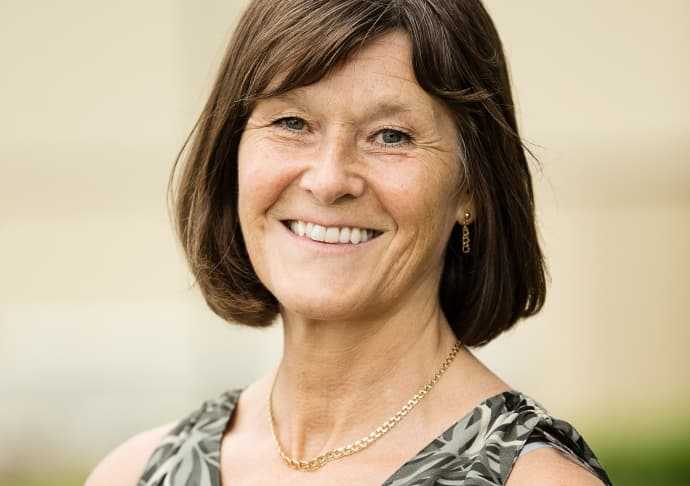KARLSTAD, Sweden — Despite an increase in production, Löfbergs continues to reduce its climate impact, thanks to energy efficiencies and a growing proportion of renewable energy. At the same time, the family-owned coffee roaster sells a record amount of certified coffee – and educate more small-scale coffee farmers than ever before. This is presented in Löfbergs’s new sustainability report.
– Many things in our business are going in the right direction in terms of sustainability. However, the industry experiences major challenges. We have a responsibility to contribute with solutions at home as well as in the producing countries, says Eva Eriksson, Director of Quality and Sustainability at Löfbergs.
A record amount of certified coffee
Climate change and fewer young people seeing a future in coffee farming are the two biggest challenges in the coffee industry today. The aim is to give more people the opportunity to convert to sustainable farming methods and to improve the conditions and possibilities for small-scale coffee farmers.
– We are contributing by purchasing certified coffee, for example. We are working with organic certifications, Fairtrade and Rainforest Alliance. They have a slightly different focus, but they are all doing good things for people and the environment, says Eva Eriksson
Löfbergs purchases all coffee directly from the producing countries and is one the largest importers of organic and Fairtrade-certified coffee in the world. The company purchased 10,000 tonnes of organic coffee and 5,300 tonnes of Fairtrade-certified coffee this year.
– It means that our customers have contributed to organic farming on an area equivalent to 18,900 football fields, without any artificial fertilizers or chemical pesticides. They have also generated SEK 56 million in additional premiums for the Fairtrade cooperatives, says Eva Eriksson.
Educating the next generation
Another significant part of Löfbergs’s sustainability work is the development projects that the coffee roaster carries out. In 2001, Löfbergs co-founded International Coffee Partners. Together with seven other family-owned coffee companies, Löfbergs works to improve the conditions for small-scale coffee farmers.
– Our efforts help the farmers rise to another level. Make them more sustainable, boost their proceeds and make it possible for them to live a better life. We welcomed participant number 75,000 this year, which truly was a milestone, says Eva Eriksson.
Another important commitment is Next Generation Coffee, an initiative where Löfbergs focuses on the next generation of coffee farmers. It is especially important as the world’s coffee farmers are getting older, while fewer young people see a future in coffee.
-We contribute to young farmers improving their quality, productivity and income. It makes farming coffee more appealing, and we are also securing the supply of good coffee in the future, says Eva Eriksson.
Towards 100 per cent renewable energy
The sustainability work at home is about energy efficiencies, renewable energy and climate-smart packaging.
Even though the production increased to 27,950 tonnes this year, Löfbergs’s climate impact decreased with twelve per cent.
– It is a result of long-term and continuous efforts to be more environmentally friendly. Today, our roasting house in Karlstad, Sweden is one of Europe’s most efficient with carbon emissions less than 0.1 tonnes per produced tonne of coffee, says Eva Eriksson.
One of Löfbergs’s most challenging goals has been to reach 100 per cent renewable energy. The company is using green electricity from wind power, geothermal heating and district heating, but have not been able to find an alternative to the fossil-based gas. Until now.
– The roasting has been our greatest challenge at home, and we have been working actively to find a more sustainable solution. And now we have. We have started incorporating biogas at our main roastery, and will continue to increase the proportion, which means that we will reach our goal of 100 per cent renewable energy by 2020, says Eva Eriksson.
Phasing out the fossil plastic
Löfbergs has been a forerunner in the packaging area for a long time. The company was the first coffee business in Europe to remove aluminium from its packaging 25 years ago. This year, it was time for the next big step in the packaging area.
– We are starting to phase out the fossil plastic and replacing it with plastic from renewable sources. Now we hope that other players in the industry will follow, says Eva Eriksson.
By 2030, Löfbergs’s packaging will only contain recycled or renewable material.
Reports according to global standard
In its sustainability report, Löfbergs accounts for measures, results and challenges within the sustainability area. The report has been developed in accordance with GRI, a global standard for sustainability reports. The report applies to Löfbergs Coffee Group, which is operating on about ten markets in Europe and Canada.
– We follow an international standard and are firm believers in openness and transparency in sustainability matters. It develops us and others. I would like to see more of the bigger coffee companies think in the same way, says Eva Eriksson.















